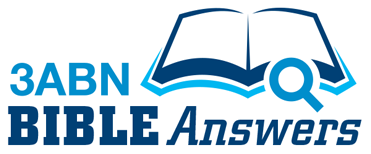If people don’t burn in hell forever, then why does John the Baptist talk about “unquenchable fire?”
Let’s take a look at the words of John the Baptist to the people, after he rebuked the Pharisees and Sadducees who had come out to be baptized for all the wrong reasons:
“And even now the ax is laid to the root of the trees. Therefore, every tree which does not bear good fruit is cut down and thrown into the fire. I indeed baptize you with water unto repentance, but He who is coming after me is mightier than I, whose sandals I am not worthy to carry. He will baptize you with the Holy Spirit and fire. His winnowing fan is in His hand, and He will thoroughly clean out His threshing floor, and gather His wheat into the barn; but He will burn up the chaff with unquenchable fire.” Matthew 3:10–12
It is true that there are references to “unquenchable fire” in the Bible. However, in allowing the Bible to interpret itself, we find that unquenchable does not mean an infinite amount of burning. For example, in Jeremiah 17, God warns Israel to honor His Sabbath or He will destroy Jerusalem with a fire that “shall not be quenched” (emphasis supplied throughout):
“But if you will not heed Me to hallow the Sabbath day, such as not carrying a burden when entering the gates of Jerusalem on the Sabbath day, then I will kindle a fire in its gates, and it shall devour the palaces of Jerusalem, and it shall not be quenched.” Jeremiah 17:27
It’s important to note that an unquenchable fire kindled by God simply means it cannot be put out. Once God lights that fire, there is no amount of water or fire extinguishers in the world that can put it out. But does this mean that it will burn endlessly for eternity? Obviously not. While God did kindle a fire in Jerusalem that could not be quenched, that fire only burned until it had served its purpose. 2 Chronicles 36:19–21 confirms that the fire spoken of by Jeremiah burned until Jerusalem was left desolate. Is Jerusalem burning today? Again, obviously not. The fire was unquenchable until it had served its purpose of destruction. Then God—and only God—allowed the flames to die out.
The same truth can be said about hellfire at the end of the world. The Bible says God is a consuming fire (Deuteronomy 4:24). This means that in the presence of God, there can be no sin. At the end of the thousand years mentioned in Revelation 20, the wicked will be burned with unquenchable fire in the presence of the Almighty. This fire will not go out until it has burned every last inch of sin. But make no mistake, it will eventually go out. That’s why Jesus says in Matthew 3:12 that He will “burn up the chaff.” All of sin will burn until it is burned up.
Similar language is used in other parts of Scripture:
“Now we beseech you, brethren, by the coming of our Lord Jesus Christ, and by our gathering together unto him…. And then shall that Wicked be revealed, whom the Lord shall consume with the spirit of his mouth, and shall destroy with the brightness of His coming.” 2 Thessalonians 2:1, 8 (KJV)
“Our God shall come, and shall not keep silence: a fire shall devour before him, and it shall be very tempestuous round about him.” Psalm 50:3 (KJV)
“And they went up on the breadth of the earth, and compassed the camp of the saints about, and the beloved city: and fire came down from God out of heaven, and devoured them.” Revelation 20:9 (KJV)
“‘For behold, the day is coming, burning like an oven, and all the proud, yes, all who do wickedly will be stubble. And the day which is coming shall burn them up,’ says the Lord of hosts, ‘that will leave them neither root nor branch…. You shall trample the wicked, for they shall be ashes under the soles of your feet on the day that I do this,’ says the Lord of hosts.” Malachi 4:1, 3
So this unquenchable fire will devour the wicked. It will consume the unrighteous. This fire will burn until it has brought the wicked to ashes and burned them up. These words are all descriptive of a fire that will clearly go out once it has served its purpose in destroying the wicked (John 3:16). Therefore, the unquenchable fire mentioned in the Bible will burn until it has consumed the last speck of sin.
